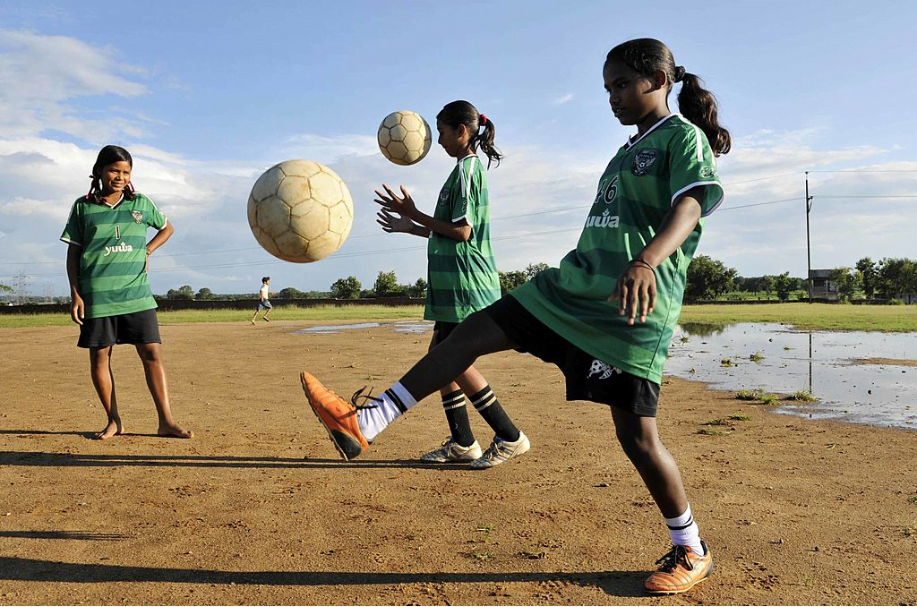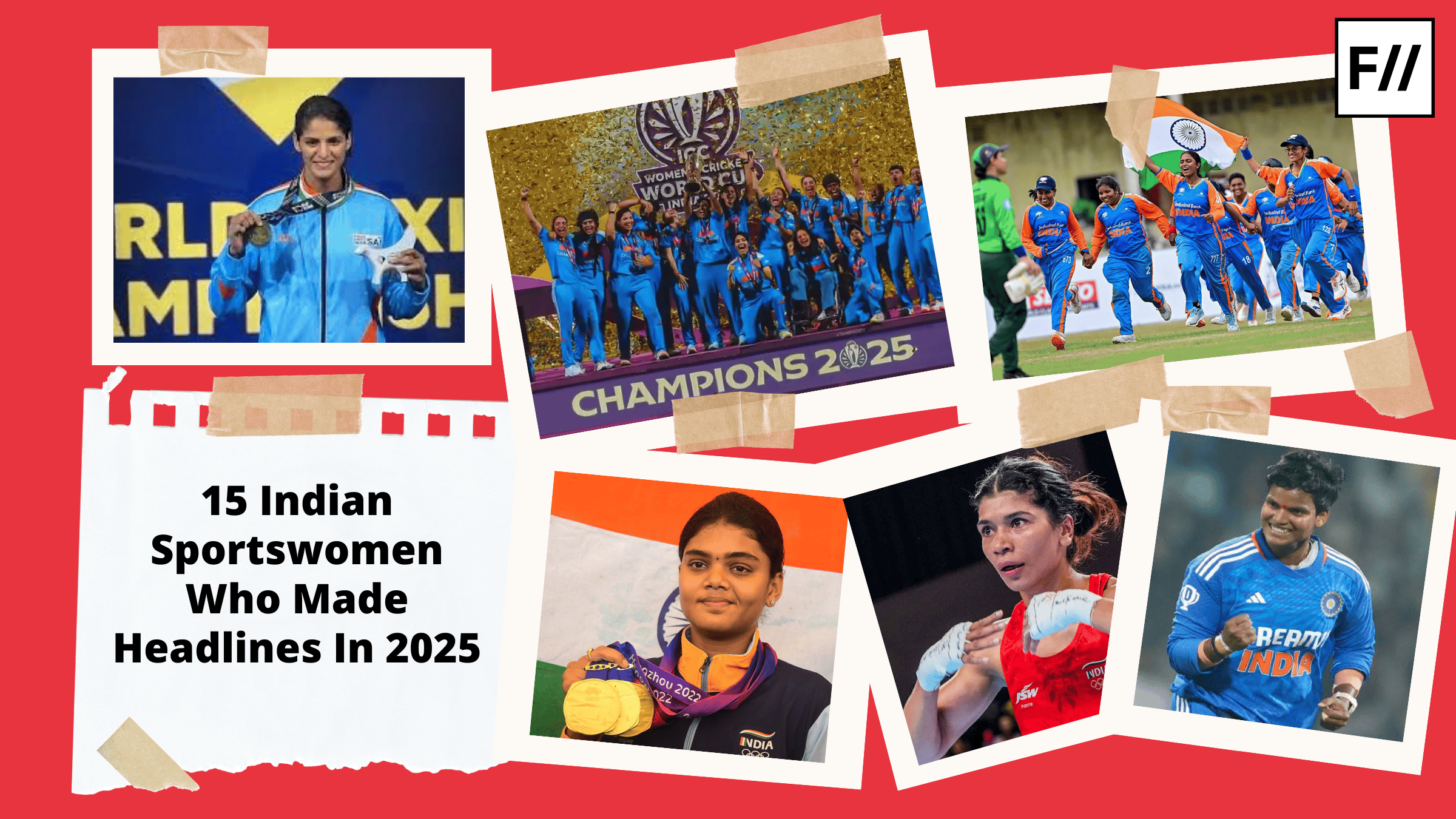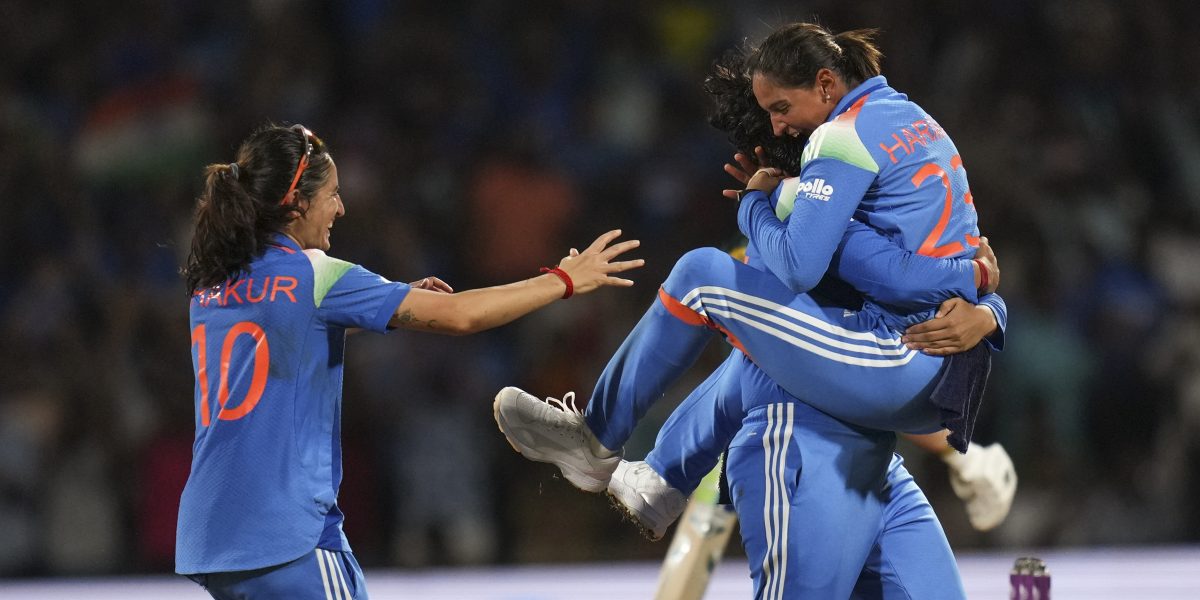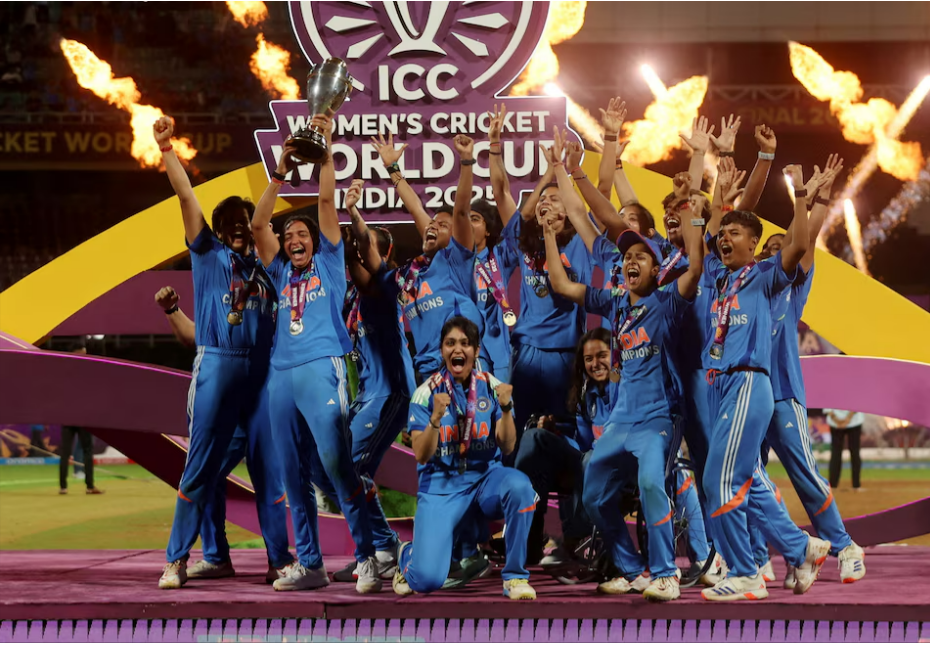United Nations Educational, Scientific and Cultural Organization (UNESCO) charter adopted in 1978 was one of the first documents that identified sports as a human right. It promoted sports as a contributor to lifelong education and as a channel to achieve social needs.
However, women across the world lack the opportunity to participate in sports and physical activities which inhibits their development and contribute to women being at a weaker position in the social, political, economic and educational domains.
Nowadays various non-profit organisations are using sports as a tool for development for women and young girls. In India, there are several organisations that have incorporated sports into their development programs and some of them focus specifically on using sports for the development of adolescent girls and women.
YUWA (meaning youth) is one such NGO based in rural Jharkhand, founded by Franz Gastler in 2009, which uses sport as a tool for development of adolescent girls. It works specifically with girls from economically disadvantaged families and uses team sports and education to build character, confidence and courage.
It helps young girls challenge the prevailing inequality in society through team sports and education. The soccer program of the organisation started with one team and soon grew to several hundred girls.
Now, more than 300 girls play each day on YUWA’s team making it one of the largest girls’ soccer programs in India with 90 percent of teams coached by young women. Teams play on unused agricultural fields and any flattened piece of ground they can find. YUWA launched its #GirlsWithGoals campaign to raise funds for girls and build their school in Hutup, Ranchi.
Slum Soccer is another organisation based in Nagpur and was founded in 2001 by Vijay Barse a retired sports teacher to offer much-needed sporting opportunities and personal development programs to disadvantaged young people across India.
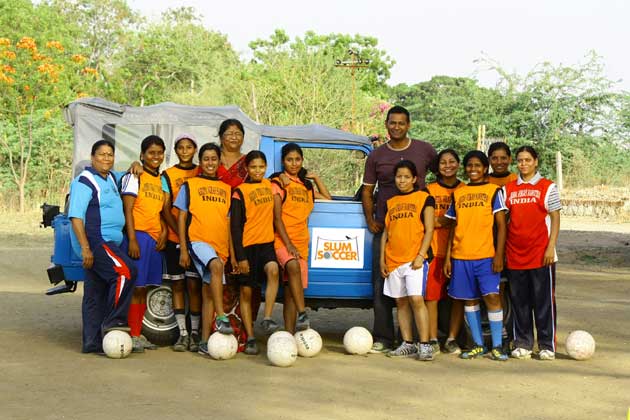
Credits: The Better India
The Slum Soccer team believes that development through sports has a huge potential and extending football program to women will help them tackle the gender inequality in the society more effectively. Under their Women Football Development program, which is active in three centres they conduct daily football training sessions for women and a major chunk of the awareness initiatives has been given to women’s development.
Their women’s team has also participated in the Homeless World Cup which has hugely improved the effectiveness of their program. Their activities have also been recognized by the Street Football Network and they invited the women’s football team to participate in an international event in Berlin in 2011.

Slum Soccer Women’s National Championship, 2016. Credits: cequiindia
Under their National Championship for Women, Slum Soccer started Football tournaments for women to provide them equal access to participation and developing confidence in them so that they participate in decision making in the social, political and economic domain of their lives.
Project KHEL (KHEL stands for Kids Holistic Education and Lifeskills) is an NGO based in Lucknow, that leverages the power of sports to captivate and empower India’s marginalized youth. Akshai Abraham founded Project KHEL in 2012 with a motto of “Taking education beyond the classroom”. “Our vision at Project KHEL is to shape a better tomorrow, by redefining education today, and enabling children to create a better future, both for themselves as well as their communities,” says Abhilasha Sachan, who is a Project Co-ordinator at Project KHEL.

Credits: Project KHEL Facebook Page
Made in Maidaan is the regular program of the organisation which harnesses the ‘Power of Play’ for development for children through a series of modules designed to impact crucial Life Skills Education (LSE) through experiential and activity based learning modules. Under this program, sessions at each beneficiary location are held on a semi-weekly basis and consists of both sports and LSE.
Also Read: 12 Sportswomen From North-East India We Ought To Know About
Children under this programme get equal opportunity to sharpen their leadership skills and build confidence by participating in various cross location events like Global Peace Games. “Girls constituted 48% of total beneficiaries of our Made in Maidaan-Life Skills Education Programme”, says Abhilasha Sachan. Apart from Made in Maidaan, they run several other programmes in workshop mode to empower the children and adolescents, specifically girl and to provide them knowledge about crucial issues.

Workshop on Menstrual Health. Credits: Project KHEL
Founded in 2013, Red Spot is their programme on Menstrual Health Management that empowers adolescent girls through activity-based workshops on understanding menstruation as clean and biological process. The goal of the workshops is to strengthen young minds to be critical about social stigma attached to menstruation.

A workshop on awareness around Child Sexual Abuse. Credits: Project KHEL
Ab Bas! is their awareness program on building awareness around the topic of Child Sexual Abuse (CSA) which affects children of all age groups, genders and social backgrounds. The workshops are conducted to enable children to distinguish between safe, unsafe and accidental touches.

Teen Talks workshop. Credits: Project KHEL
Teen Talks is their forum for open discussions with teenagers where they can ask/share/discuss questions related to a range of issues from body image to handling relationships, discuss sex and sexuality and so on.
When asked about their impact on the field, Abhilasha Sachan, their Project Co-ordinator said, “In last 5 years of operation, we have directly impacted more than 23,448 children and adolescents, through our various program and indirectly have reached out to more than 1,70,000 people through our trainings and events. Last year that is April 2016-March 2017, we worked directly with 8132 children and adolescents, including 5800 girls”.
CREA is a feminist, human rights-based organisation in New Delhi which was founded in 2000. CREA works at the grassroots, regional, national and international level for the rights of women and girls and the sexual and reproductive freedom of all people.
Building on its work in the fields of gender, sexuality, reproductive health and rights, CREA through it’s It’s My Body program works to strengthen the Sexual and Reproductive Health and Rights (SRHR) of adolescent girls in India through sports. Sports allows CREA to address and increase bodily integrity among young girls, enabling them to exert greater control over their bodies.
It helps girls improve their leadership skills and teamwork and helps them to make their own decisions regarding their body, health and lives. It enhances their mental and physical well being and self-esteem.
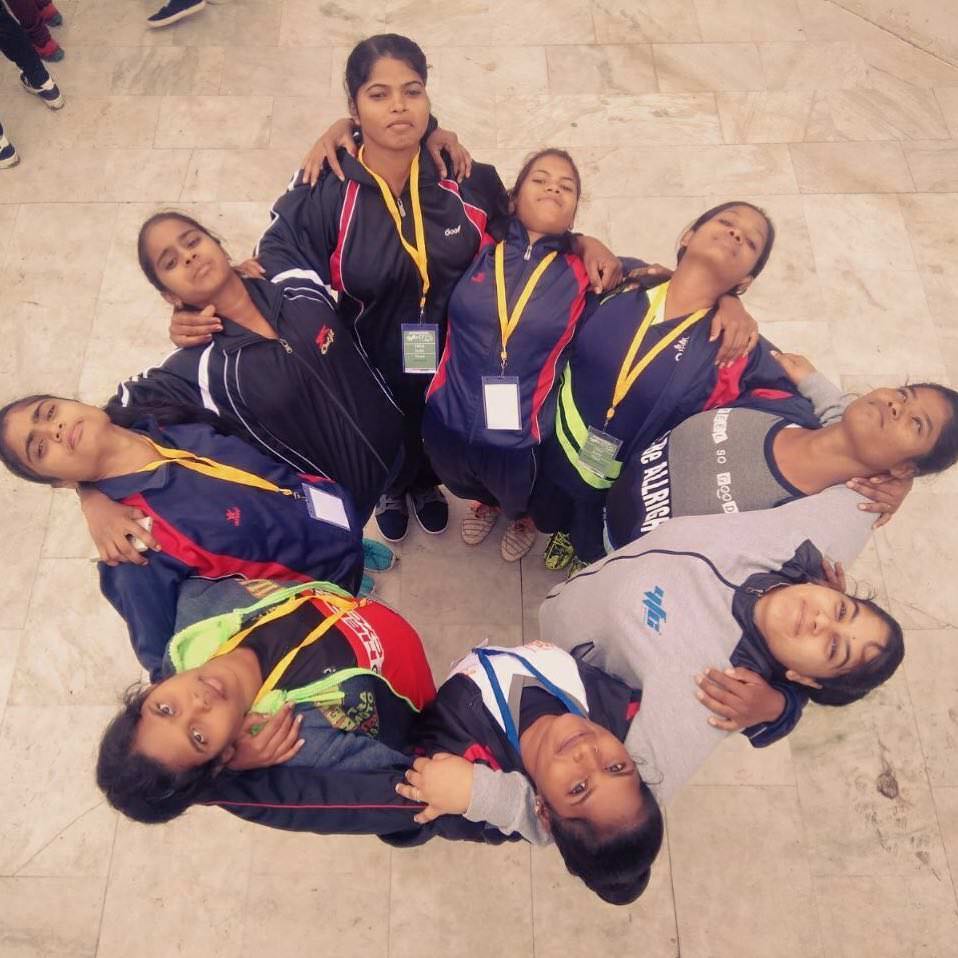
Girls from CREA’s Its My Body program. Credits: CREA Facebook Page
Under this program, CREA conducts sports and knowledge building session for kishori (girls) groups on SRHR on topics such as gender norms, self-esteem, body image, violence and human rights. The IMB program has reached 250 villages in eight districts of Bihar, UP and Jharkhand. Their work is based on social-ecological model where they work directly with girls, parents, community, school, Panchayats, health system as well as SHGs (Self-Help Groups).

Credit: Naz India
Another such organisation is The Naz Foundation which is a non-profit organisation founded by Anjali Gopalan in 1994 with the aim of addressing HIV/AIDS with a holistic approach to prevention and treatment. The core idea of this foundation is that all children have a fundamental right to a fun-filled childhood with access to health, education and safe stigma-free environment.
In 2006, Naz, in partnership with Standard Chartered Bank, initiated the Goal program in urban communities. It is a women’s empowerment program offering weekly sessions to adolescent girls who are subsisting on a low family income due to which sometimes they have to drop out of school. The program offers netball and life skills education sessions at least twice a which focuses on the promotion of self confidence, communication skills, health and hygiene and financial literacy.
Sport is a strong channel of conveying positive messages among the children and youth and building up their self-esteem and interpersonal skills. It is an important tool in attaining both physical and mental fitness. Designing development programs based on sports can be a very effective tool as it promotes participation, inclusion, acceptance of rules, human values and respect for other teammates and players which leads to the holistic development of children.
Also Read: Watch: The Team Without A Nation – The Tibetan Women’s Football Team
Featured Image Credit: Getty Images
About the author(s)
Shinjinee grew up in the culturally diverse environment of Banasthali University, Rajasthan and since then has stayed in different cities of India. A graduate in English Literature from Banaras Hindu University, Shinjinee is pursuing her Master's in Women's Studies from TISS, Hyderabad and also holds a Diploma in Mass Communication from BHU.
